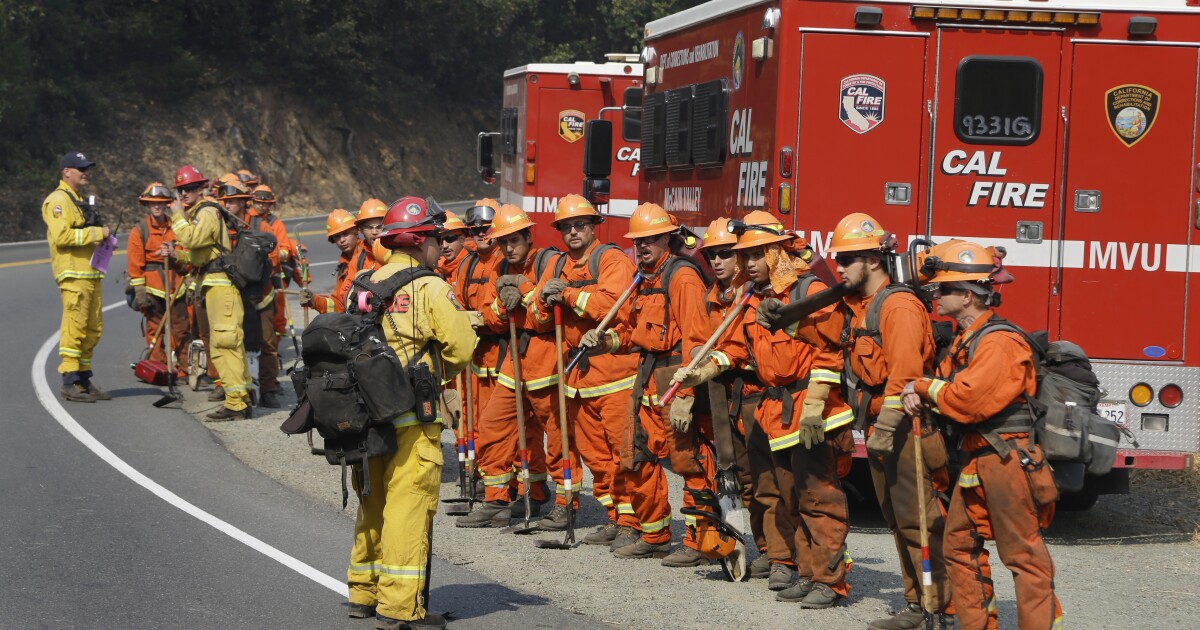

California has not permitted slavery since it was admitted to the Union in 1850, but the state has permitted prisoners to be used for labor. Now, some are looking to change that.
Some legislators in the state are pushing for the Golden State’s constitution to be modified so that prisoners will have to be paid according to the state’s minimum wage for their labor.
CALIFORNIA REPARATIONS TASK FORCE ANNOYED DOLLAR FIGURE IS DOMINATING HEADLINES
“Slavery is prohibited. Involuntary servitude is prohibited except to punish crime,” Article 1, Section 6 of the California constitution has said since being modified in 1974.
Currently, some prisoners can take on jobs. One of the jobs is being a firefighter for eight to 30 cents per hour as part of a rehabilitation program, per the California Department of Corrections and Rehabilitation.
A bill that would have put a question on the ballot last November regarding outlawing all forms of “involuntary servitude” failed in the Senate because Gov. Gavin Newsom’s (D-CA) administration warned paying prisoners could cost the state $1.5 billion per year, according to the Associated Press.
Democratic state Assemblywoman Lori Wilson proposed a bill that would put a question on the ballot in November 2024 regarding a constitutional amendment to outlaw all forms of “involuntary servitude” in the state. She told the Los Angeles Times in February, “There is no room for slavery in our constitution. It is not consistent with our values, nor our humanity.”
The push to strike the line from the state’s constitution looks to be an uphill battle. Prisoners make up a significant portion of the firefighting crews used to battle the state’s frequent wildfires. The push also comes as the state is currently weighing giving black residents reparations.
Newsom signed the bill creating a reparations task force in 2020, but he has largely remained silent on whether he would support the current proposals. The proposals call for $360,000 for the roughly 1.8 million black residents with at least one enslaved ancestor in the Golden State.
The estimated $800 billion cost is roughly 2.5 times the state’s annual budget, and Newsom is currently trying to juggle a nearly $22.5 billion budget deficit for fiscal 2024. The budget deficit likely means programs will see cuts, and the implementation of a reparations program would be a new expenditure for the state.
Members of the task force currently evaluating reparations proposals have expressed their frustration with the media focusing on the proposed price tag of the program.
“It’s important, but it’s the least important in terms of being able to get to a point in our country’s history and in California’s history where we recognize that the harm cuts across multiple areas and domains and that the repair needs to align with that. It’s really unfortunate. I’m actually sad to see that our news media is not able to nuance better. It’s almost like, ‘What’s going to be sensational’ as opposed to what’s important,” Cheryl Grills, a member of the state task force, told CalMatters.
CLICK HERE TO READ MORE FROM THE WASHINGTON EXAMINER
Aside from the state’s task force, a separate task force is examining reparations for black residents in the city of San Francisco. Current proposals call for $5 million payments along with other benefits, including the elimination of personal debt and tax burdens, guaranteed annual incomes of at least $97,000 for the next 250 years, and homes in the city for $1 per family.
Lawmakers in San Francisco have proposed setting aside $50 million to create an office in preparation for handling the San Francisco reparations program, which looks likely to pass. The proposed plan has received criticism from many groups and people, including the San Francisco chapter of the NAACP, which argued investment in the black community would be more useful than direct payments.





